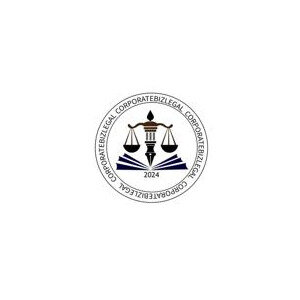Best Admiralty & Maritime Lawyers in Nepal
Share your needs with us, get contacted by law firms.
Free. Takes 2 min.
Or refine your search by selecting a city:
List of the best lawyers in Nepal
About Admiralty & Maritime Law in Nepal
Nepal, as a landlocked country, has limited direct engagement with Admiralty and Maritime Law, which traditionally deals with regulations and legal issues concerning maritime conduct, activities, and commerce. However, the country participates in international maritime activities through its demand for shipping and trade via neighboring countries with coastal access. Legal issues related to shipping, trade import/export, and inland water transportation fall under this category and are governed by international standards as adopted by Nepal.
Why You May Need a Lawyer
Individuals and businesses in Nepal may require legal assistance in Admiralty & Maritime under several circumstances, including:
- Disputes related to shipping contracts and logistics with foreign shipping companies.
- Inland water transport issues regarding rights and safety regulations.
- Import/export legal compliances and arbitration with international suppliers or distributors.
- Insurance claims regarding goods damaged in overseas transit.
- Legal registration and compliance for vessels operating within neighboring countries' ports.
Local Laws Overview
Nepal's legal structure concerning Admiralty & Maritime Law involves adherence to international agreements and requirements, as well as regulations governing internal waterway systems:
- Regulations on the operation of ferries and other water transport within lakes and rivers in Nepal.
- Compliance with South Asian regional agreements concerning trade and transit rights through coastal neighbors.
- Enforcement of international conventions ratified by Nepal, like the United Nations Convention on the Law of the Sea (UNCLOS), affecting how trade is conducted.
Frequently Asked Questions
1. Does Nepal have specific admiralty and maritime laws?
Nepal relies on international conventions and regional agreements to manage maritime-related issues due to its landlocked geography, emphasizing trade routes and logistics through neighboring countries.
2. How does Nepal handle maritime disputes?
Maritime disputes typically involve arbitration or legal proceedings based on contracts and agreements governed by international trade law and partnerships with transit countries.
3. Are there opportunities for maritime trade in Nepal?
While direct maritime activities are limited, Nepal actively engages in inland waterway trade and international import/export facilitated through transit countries.
4. Can Nepal-registered companies own ships?
Nepali companies may own vessels that are registered in ports of countries with which Nepal has transit and trade agreements.
5. How are maritime accidents handled?
Accidents in transit routes involving Nepal are managed by international maritime laws, parties' contracts, and insurance clauses, involving coordinated responses with shipping partners.
6. What is the role of logistics companies in maritime law in Nepal?
Logistics companies play a crucial role in ensuring adherence to international trade law, managing cross-border and overseas transportation, and resolving disputes.
7. How significant is the role of customs in maritime issues?
Customs play a pivotal role in regulating imports and exports, managing duty implications, and ensuring compliance with international laws and agreements.
8. Can maritime cases be resolved in Nepali courts?
Yes, especially if the dispute involves local contract issues, but often with collaboration on international arbitration where foreign parties are involved.
9. How do shipping regulations affect businesses in Nepal?
Businesses must comply with regional trade policies and logistics requirements to effectively manage import/export operations, sometimes consulting legal experts for compliance.
10. Are there specific insurance regulations for maritime activities?
Yes, companies must adhere to international insurance requirements governing maritime logistics, ensuring coverage for goods in transit and liability issues.
Additional Resources
Seeking further assistance or information? Consider contacting the following organizations:
- The Department of Customs, Government of Nepal, for guidance on import/export regulations.
- The Nepal Freight Forwarders Association for logistic service facilitation and trade-related concerns.
- International maritime law firms or organizations that Nepal collaborates with for legal expertise.
Next Steps
If you need legal assistance in Admiralty & Maritime Law in Nepal, consider the following steps:
- Consult with a lawyer specializing in international trade and maritime law to understand your legal standing and obligations.
- Engage with local business associations that can provide support in navigating trade-related legal systems.
- Reach out to governmental bodies for specific regulatory guidance needed in the conduct of your business.
Understanding and addressing your legal needs promptly can safeguard your business operations from international and regional trade disruptions.
Lawzana helps you find the best lawyers and law firms in Nepal through a curated and pre-screened list of qualified legal professionals. Our platform offers rankings and detailed profiles of attorneys and law firms, allowing you to compare based on practice areas, including Admiralty & Maritime, experience, and client feedback.
Each profile includes a description of the firm's areas of practice, client reviews, team members and partners, year of establishment, spoken languages, office locations, contact information, social media presence, and any published articles or resources. Most firms on our platform speak English and are experienced in both local and international legal matters.
Get a quote from top-rated law firms in Nepal — quickly, securely, and without unnecessary hassle.
Disclaimer:
The information provided on this page is for general informational purposes only and does not constitute legal advice. While we strive to ensure the accuracy and relevance of the content, legal information may change over time, and interpretations of the law can vary. You should always consult with a qualified legal professional for advice specific to your situation.
We disclaim all liability for actions taken or not taken based on the content of this page. If you believe any information is incorrect or outdated, please contact us, and we will review and update it where appropriate.
Browse admiralty & maritime law firms by city in Nepal
Refine your search by selecting a city.












